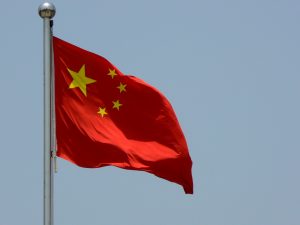By Abhijnan Rej

Two recent episodes, in New Delhi and Brussels, highlight how Chinese intelligence services are increasingly using the country’s state-controlled media and personnel affiliated with it for the purposes of espionage and influence operations. The Indian and Belgian examples come at a time of increasing global scrutiny of Chinese media agencies and their covert activities, as well as pushback against the Chinese Communist Party’s (CCP’s) increasing use of a diverse set of actors – both Chinese as well as foreign nationals – to further its political causes.
On September 19, the Delhi Police’s Special Cell, a unit tasked with national-security related investigations, released a statement noting it had arrested an Indian journalist, along with one Chinese and one Nepali national, on espionage charges under India’s Official Secrets Act. The journalist, Rajeev Sharma, was arrested on September 14, according to Delhi Police, based on input from an Indian intelligence agency.
The 61-year-old Sharma was accused of passing defense and foreign-policy related information to two Chinese individuals based in the city of Kunming. The Delhi Police also noted that it had arrested the two foreign nationals for serving as a front for payments to Sharma totaling 3 million Indian rupees between January 2019 and September 2020. It alleged that Sharma had been involved with Chinese intelligence services since 2016. He is currently in judicial custody.
Sharma, a veteran freelance journalist specializing in national security, foreign policy, and Indian political issues, has written for a variety of outlets, including the Quint, Rediff, Firstpost and dailyO, among others. He has also worked for prominent Indian newspapers like the Hindustan Times and Times of India in the past, a Press Trust of India report notes. (Disclosure: Sharma regularly contributed to The Diplomat until 2012.) Between 2010 and 2014, Sharma also wrote a weekly column for the CCP-affiliated tabloid Global Times, the Delhi Police noted in its statement.
In fact, the Delhi Police claimed that it was his work for the Global Times that brought him to the attention of Chinese intelligence services, who contacted him through LinkedIn about a career opportunity with a Chinese media company – a move consistent with what we know about how Chinese spy services have operated in the recent past. The Delhi Police stated that Sharma, after an initial period of contact with Chinese entities between 2014 and 2016, was again approached to provide information in January 2019 through an individual who claimed to be “a General Manager of a Chinese Media Company.”
Sharma also wrote about India-China relations in the Indian media. In June 2018, in an article in the Quint, he claimed that the Dalai Lama was suffering from prostate cancer and seeking treatment in the U.S. While it is entirely possible that Sharma’s writings in the Indian media on such matters had nothing to do with his alleged illegal activities, the fact that he did continue to write publicly on sensitive topics in India-China relations – while allegedly maintaining links with China’s spy services – has raised eyebrows. (Amitabh Mathur, a former senior Indian intelligence officer and adviser on Tibetan affairs, sardonically tweeted in response to Sharma’s June 2018 article: “Dalai Lama is Terminally Ill, Who Will Succeed Him? Written by the man accused of spying for the Chinese.”)
Across the Eurasian landmass, news has emerged that a joint investigation between the Belgian and British security services has accused Fraser Cameron – the head of the Brussels-based EU Asia Centre and a former employee of both the British Secret Intelligence Service, also known as MI-6, and the European Commission – of maintaining a “willing relationship” with two Chinese spies posing as journalists. (Disclaimed: Cameron wrote three op-eds for The Diplomat between 2016 and 2018.)
According to a September 18 Financial Times report, Belgium’s security service has stated that Cameron’s actions “posed a clear threat towards European institutions” in Brussels, even though he has not been accused of passing classified information to China. Cameron has denied the allegations, noting, “I have had no access to any secrets or confidential information,” according to the Times.
Interestingly, Politico reports that Cameron is “suspected by Belgian intelligence of receiving thousands of euros for providing confidential – but not necessarily classified – political and economic information to the Chinese regarding European institutions.”
Both the Sharma and Cameron episodes illustrate the growing challenge for intelligence services in terms of China’s penetration of journalists and think tankers in their jurisdictions – people who may have access to political and military information that is potentially interesting, but which may not be outright classified. While the Delhi Police has accused Sharma of passing on classified information to Chinese intelligence, the specifics remain unknown. In a press conference, the police stated that “Sharma had access in various ministries and was a part of the media circle with good contacts and so had access to a lot of information.” This suggests that Sharma was most likely being used to scoop up sensitive information which may not necessarily have been stamped “secret.” (The Delhi Police, however, has also claimed that it seized “some confidential documents” during a raid at Sharma’s residence.)
At the same time, journalists, academics, and think tankers routinely interact with foreign embassies, academics and their counterparts in other countries, including China, for legitimate professional purposes. How democracies combat China’s penetration of their civil societies while protecting the rights of their citizens to meet legal, albeit sensitive, occupational demands remains to be seen.
No comments:
Post a Comment